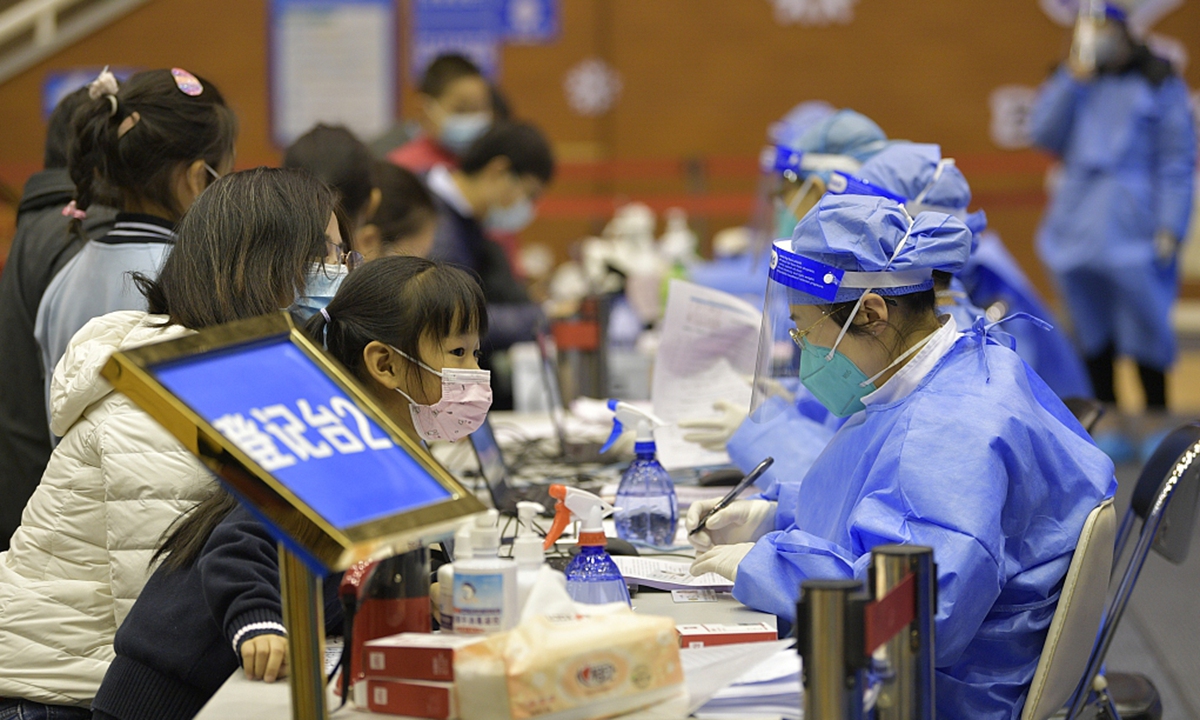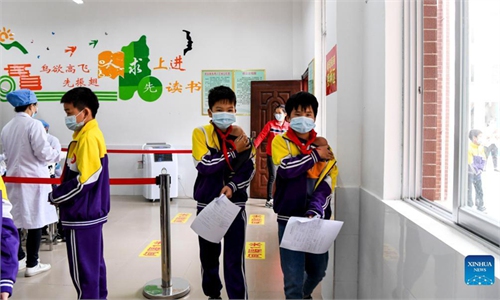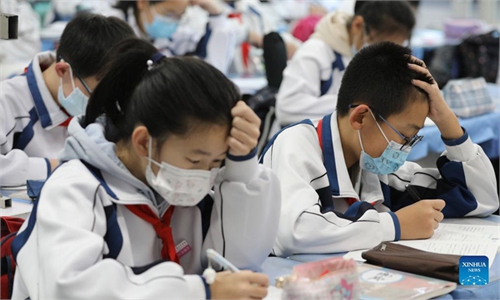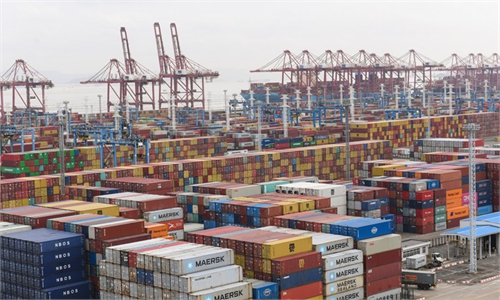
Photo:VCG
The latest resurgence of COVID-19 infections is close to an end, a National Health Commission (NHC) official said on Saturday, as eight provinces hit by the latest flare-up have reported zero new cases for 14 consecutive days, and the increase in domestically transmitted cases nationwide has been limited to single-digits for four consecutive days.
Wu Liangyou, the deputy director from the NHC disease control bureau said during a Saturday briefing that except for Dalian, city in Northeast China's Liaoning, other provincial-level regions had reported few cases over recent days, which were mainly from collective quarantine spots and risk areas. The official said that even coronavirus transmission in Dalian has been flattened but he still warned risk of flare-ups.
Although many places have been struck by the latest COVID-19 resurgence, the wave was brought under control quickly. The anti-epidemic experiences in Shanghai and some other places have provided valuable lessons in guiding other regions by containing flare-ups as early as possible in order to minimize their impact, according to Wu.
Also, one major reason authorities contained the latest outbreak quickly was through advancing mass vaccination, which now covers in total about 1.23 billion people and nearly 1.1 billion of whom have received two doses, equaling an overall vaccination rate reached 87 percent, he said.
In order to play a critical role in epidemiological investigations targeting the epidemic, the top health authority also has formed a "national team for epidemic investigation," drawing on more than 300 health experts from national and local disease control and prevention departments, Wu noted.
The team has been established to deploy in locations experiencing a resurgence of COVID-19 as soon as possible, and identify the transmission chain within 24 hours, said Wu, noting this helps to put off the transmission in the shortest time and at the lowest cost.
Despite the good news, officials warned that worsening global coronavirus transmission is exerting greater pressure on China's defense over imported cases. To manage this imminent challenge, China will strengthen anti-epidemic prevention over ports and continue with the country's zero tolerance policy to minimize the impact on people's livelihoods, said Mi Feng, a spokesperson from the NHC.
During the winter, the risk of coronavirus being spread through imported cold-chain food was also highlighted during the briefing on Saturday. Such risk should be strictly prevented, said Liu Hongbin, an official from the State Administration for Market Regulation.
China has formed a set of risk control measures for imported cold chain food storage, including timely examination of cold-chain related food and build a nation-wide tracing system for imported frozen food, he noted.



